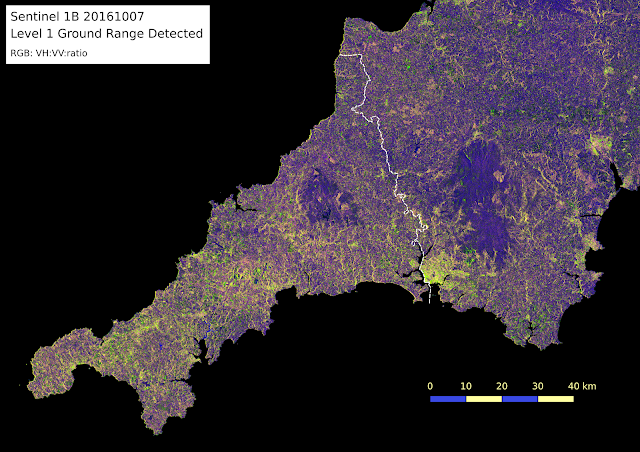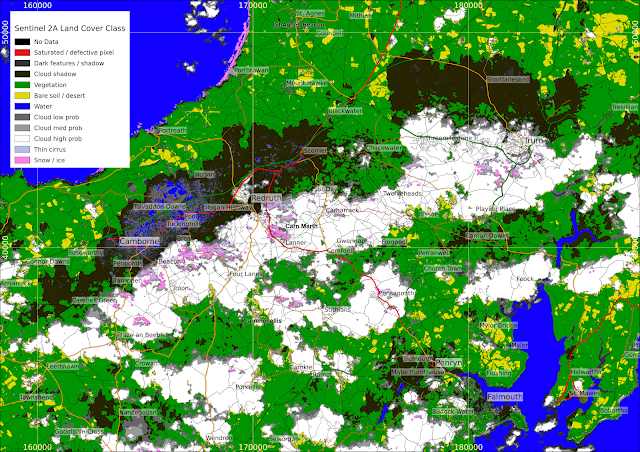Cornwall and Devon, with the ESA Sentinel1B synthetic aperture radar satellite
Tags: radarcornwallremote sensingSentinel123 Oct 2016 - MawKernewek
The European Space Agency operates the pair of Sentinel 1 synthetic aperture radar satellites.
The advantage of radar is that it is not affected by clouds to the same degree that optical remote sensing is, and there is also useful information gained by the polarisation.
As an example, I downloaded a Sentinel 1B product covering Cornwall and Devon which was taken on 7th October 2016, from the Copernicus data hub.
The type of product I used is the Interferometric Wide Swath mode (further detail).
I used the Sentinel Toolbox to perform orthorectification automatically, and visualise as a RGB with VH polarisation in the red channel, VV in the green, and the ratio between the two in the blue.
The stripmap mode of aquisition, which is less commonly used, provides a higher resolutionof 5m x 5m.
Here is an image from 11th December 2014, with the same colour scheme used.
The advantage of radar is that it is not affected by clouds to the same degree that optical remote sensing is, and there is also useful information gained by the polarisation.
As an example, I downloaded a Sentinel 1B product covering Cornwall and Devon which was taken on 7th October 2016, from the Copernicus data hub.
The type of product I used is the Interferometric Wide Swath mode (further detail).
I used the Sentinel Toolbox to perform orthorectification automatically, and visualise as a RGB with VH polarisation in the red channel, VV in the green, and the ratio between the two in the blue.
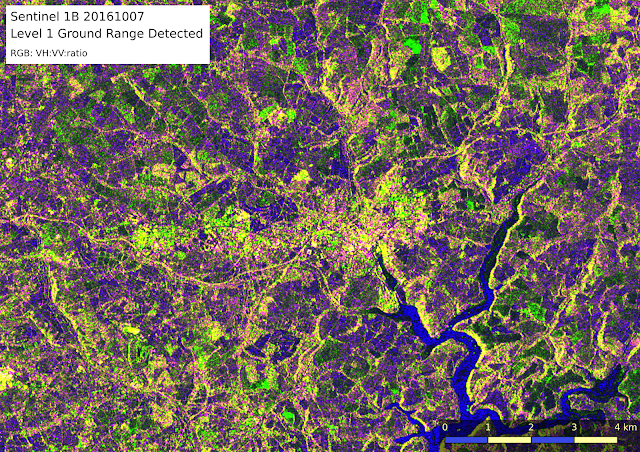 |
| Truro |
Here is an image from 11th December 2014, with the same colour scheme used.
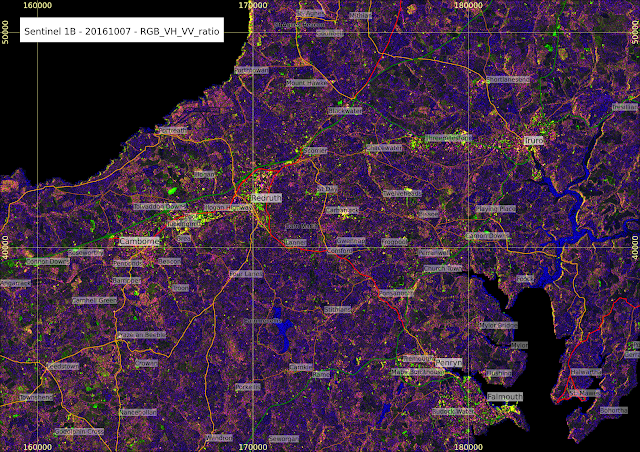 |
| Returning to the interferometric wide swath mode, overlaying roads and placenames for context. The colour scaling is slightly different in this image, making the green band less strong. |
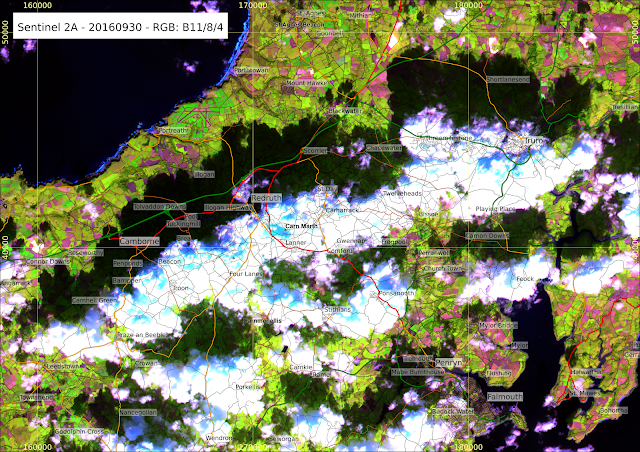 |
| A portion from a Sentinel 2A image from 30th September 2016, using bands 11, 8 and 4 (1610nm, 842nm, 655nm). |
